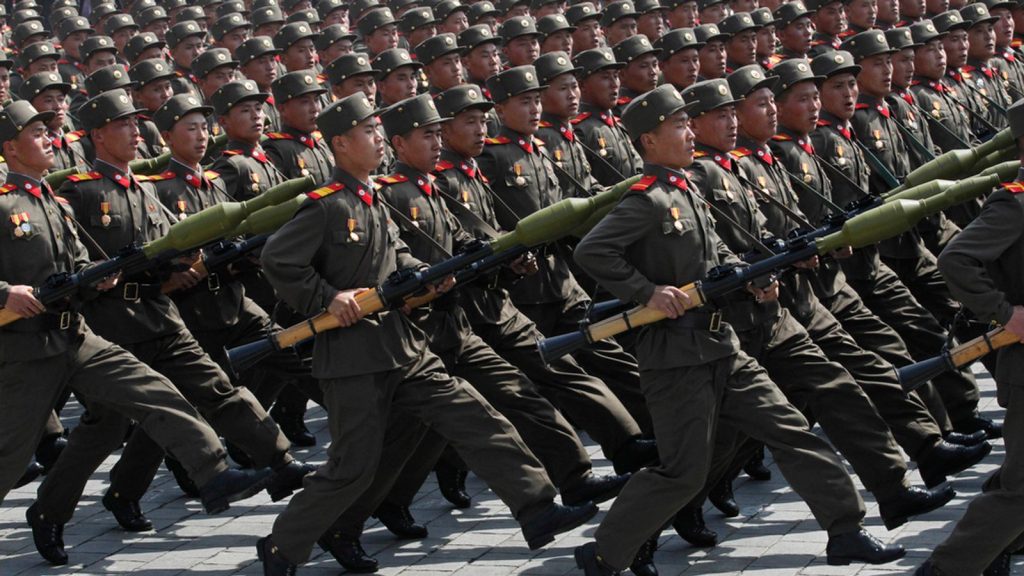
Ukraine has confirmed its first-ever direct clash with North Korean troops, marking a troubling development in the ongoing war with Russia. Ukrainian Defense Minister Rustem Umerov disclosed in an interview with South Korean broadcaster KBS that a small group of North Korean soldiers had been involved in an attack.
This unprecedented encounter, described by Ukrainian officials as the “first battles” with North Korean forces, has heightened global concerns about the increasing instability surrounding the war. Ukrainian President Volodymyr Zelensky, who had previously criticized the West for its lack of action on North Korean involvement, expressed alarm, stating that the arrival of North Korean troops on the frontlines “opens a new chapter of instability in the world.”
However, South Korea’s government has cast some doubt on the extent of the confrontation, stating that they do not believe there was direct combat between North Korean and Ukrainian soldiers. Instead, they referred to the incident as involving “a small number” of North Korean soldiers near the frontlines in Ukraine, which they described as an isolated event rather than a full-scale engagement. Despite this, reports from Ukraine suggest that approximately 11,000 North Korean soldiers are stationed in the Kursk region, a key area where Ukrainian forces are entrenched.
In recent weeks, multiple intelligence sources, including those from the U.S., South Korea, and NATO, have confirmed reports of North Korean troops being involved in Russia’s war effort. Although both Russia and North Korea have yet to officially comment on these claims, the evidence has raised alarm across the globe. Ukrainian officials have repeatedly highlighted the presence of North Korean forces as part of Russia’s broader strategy to strengthen its military operations.
Andriy Kovalenko, Ukraine’s top counter-disinformation official, was among the first to confirm the presence of North Korean military units in Ukraine, mentioning in a Telegram post that the troops had been “under fire in Kursk.” Rustem Umerov later affirmed this statement, though he clarified that the encounters were limited to “small contacts” and not a full-scale battle. Umerov indicated that North Korean soldiers were still undergoing training and were not yet fully deployed in combat roles.
“Their involvement in the conflict is mostly in the form of training,” Umerov explained. “They’re wearing Russian uniforms, undergoing tactical training, and are being deployed under Russian commands.” The North Korean soldiers are said to be primarily stationed on the front lines, and Ukraine anticipates the deployment of five units, each comprising approximately 3,000 troops.
Although it remains unclear whether there were any casualties from the recent encounters, the reports have added to the growing concerns over the internationalization of the war. Ukrainian President Zelensky has urged the world to take immediate action to prevent the further escalation of the conflict, calling on nations to unite in opposition to Russia’s expanding military efforts.
“The world must work together to ensure this Russian move, which includes expanding the war through North Korean involvement, ends in failure—not only for Russia but also for North Korea,” Zelensky stated in his daily address on Wednesday.
The presence of North Korean troops in Ukraine has sparked significant diplomatic tensions, particularly in South Korea, where the prospect of direct military involvement by Pyongyang has raised alarms. In response, Seoul has taken diplomatic action, summoning the Russian ambassador to demand the “immediate withdrawal” of North Korean forces from Ukraine. South Korean officials have also signaled that they may consider supplying arms directly to Ukraine, as part of efforts to counteract Pyongyang’s increasing involvement in the war.
Analysts speculate that North Korea’s participation could be tied to a reciprocal agreement with Russia, which may offer Pyongyang military technology or financial support in exchange for sending troops to Ukraine. The cooperation between the two nations has been deepening, particularly following Russian President Vladimir Putin’s visit to North Korea in June, where the two countries discussed military alliances and mutual defense.
On Wednesday, the Russian legislature is set to vote on ratifying a mutual defense treaty with North Korea, which would commit both countries to assist each other in the event of foreign aggression. This pact is expected to formalize the growing military ties between Moscow and Pyongyang and is seen as a significant step toward strengthening their strategic partnership amid growing international isolation.
As the situation evolves, Ukraine and its allies face new challenges in countering both Russian and North Korean aggression, with the potential for further destabilization in the region.





